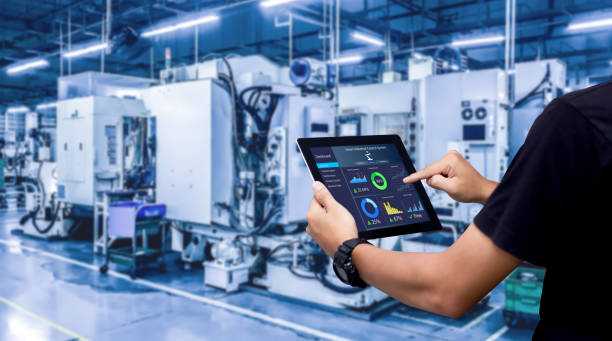All about careers in food packaging: roles and opportunities
The food packaging industry plays a crucial role in ensuring that food products reach consumers safely and in optimal condition. This sector offers diverse career paths with varying skill requirements, from entry-level positions to specialized technical roles. As consumer demand for packaged food continues to grow, employment opportunities in this field remain steady across production facilities, warehouses, and distribution centers. Food packaging careers combine elements of food safety, logistics, quality control, and increasingly, sustainability initiatives that respond to changing market demands.

Understanding warehouse picking and packing roles
Warehouse picking and packing positions form the backbone of food packaging operations. These roles involve selecting the correct products from inventory and preparing them for shipment according to specific orders. Pickers typically navigate warehouse spaces using handheld devices that indicate which items to collect and their locations. Once products are gathered, packers ensure they are properly boxed, labeled, and prepared for shipping.
Entry-level positions in warehouse picking and packing generally require minimal formal education, making them accessible starting points for those new to the industry. Physical stamina is important as the job often involves standing for extended periods, lifting packages of varying weights, and maintaining a quick but accurate pace. Many facilities operate multiple shifts, offering flexibility for workers with different scheduling needs.
Career paths in food packaging companies
Food packaging companies offer career advancement opportunities that extend well beyond entry-level positions. With experience and demonstrated reliability, warehouse workers can advance to team leader or shift supervisor roles, overseeing daily operations and training new employees. Further career progression might lead to warehouse management positions that require broader operational knowledge and leadership skills.
Technical career tracks are also available within food packaging companies. Quality assurance specialists monitor production standards and ensure compliance with food safety regulations. Maintenance technicians keep packaging machinery running efficiently, while process engineers work to optimize production lines. Many companies offer internal training programs or tuition assistance for employees seeking to enhance their skills and move into more specialized positions.
Skills needed for packaging warehouse jobs
Success in packaging warehouse jobs requires a combination of technical abilities and soft skills. Attention to detail is paramount, as accuracy in order fulfillment directly impacts customer satisfaction. Basic math skills are necessary for inventory counting and verification processes. Familiarity with warehouse management systems and scanning technology is increasingly important as operations become more automated.
Communication skills prove valuable when coordinating with team members and supervisors across busy warehouse environments. Problem-solving abilities help workers address unexpected challenges that arise during shifts. As the industry evolves, adaptability becomes essential—employees who can quickly learn new processes or technologies position themselves for long-term success and advancement opportunities.
Time management and organizational skills allow packaging workers to meet productivity targets while maintaining quality standards. Many facilities operate on tight schedules coordinated with transportation logistics, making reliability and punctuality critically important workplace values.
Food safety considerations in packaging careers
Food packaging professionals at all levels share responsibility for maintaining product safety and integrity. This includes understanding and following strict protocols for handling different food categories, recognizing contamination risks, and implementing appropriate sanitation procedures. Many positions require food handler certification or similar credentials that demonstrate knowledge of basic safety principles.
Temperature control ranks among the most critical aspects of food packaging safety. Workers must understand proper storage requirements for various products and maintain cold chain integrity throughout the packaging process. Documentation plays an important role as well, with accurate record-keeping essential for traceability in case of potential safety concerns or recalls.
As regulations evolve, packaging professionals must stay current with changing requirements. Companies typically provide ongoing training to ensure compliance with food safety standards established by agencies like the FDA and USDA, along with relevant state and local authorities.
Technology trends affecting packaging warehouse jobs
Automation is transforming warehouse operations across the food packaging industry. Robotic picking systems, automated guided vehicles (AGVs), and conveyor systems increasingly handle routine tasks, changing the nature of human roles in these environments. Rather than eliminating jobs, this shift often redirects workers toward oversight, quality control, and exception handling.
Warehouse management systems now incorporate sophisticated tracking technology that improves inventory accuracy and operational efficiency. Workers increasingly use tablets, scanners, or voice-directed picking systems rather than paper documentation. This technological evolution creates opportunities for employees with digital literacy skills who can adapt to new systems and tools.
Sustainability initiatives are also reshaping packaging operations. As companies respond to consumer demand for eco-friendly packaging, warehouse workers encounter new materials, sorting requirements, and waste reduction processes. Understanding sustainability principles adds value to a worker’s skill set as these practices become standard across the industry.
Salary and growth outlook in food packaging
Food packaging careers offer competitive compensation that varies by position, experience level, and location. Entry-level warehouse picking and packing positions typically start near minimum wage but often include opportunities for performance bonuses and shift differentials. As workers gain experience and advance to supervisory roles, salaries increase accordingly, with warehouse managers and specialized technical staff commanding significantly higher compensation.
The industry demonstrates resilience even during economic downturns, as food remains an essential consumer product. Employment growth projections remain steady, with particular demand for workers who combine traditional warehouse skills with technological adaptability. Regions with high concentrations of food production facilities offer the most abundant opportunities, though packaging operations exist nationwide to serve local and regional markets.
Benefits packages often include health insurance, retirement plans, and paid time off, particularly with larger employers. Some companies offer additional perks such as employee discount programs, wellness initiatives, or education assistance to attract and retain qualified workers in this essential industry.
Prices, rates, or cost estimates mentioned in this article are based on the latest available information but may change over time. Independent research is advised before making financial decisions.
Conclusion
Food packaging careers offer accessible entry points and clear advancement pathways for individuals with various skill levels and educational backgrounds. The industry combines traditional warehouse operations with evolving technology and strict safety protocols, creating diverse roles that accommodate different strengths and interests. As consumer demand for packaged food continues, this sector remains a source of stable employment opportunities while offering the satisfaction of contributing to an essential service that connects food producers with consumers worldwide.




